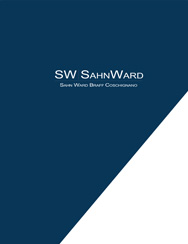First Department Expands New York Anti-SLAPP Law to Award Costs and Attorneys’ Fees Upon Dismissing Retaliatory Litigation
By Danny D. De Voe, Esq. and Brandon C. Kemp, J.D. (pending admission)
Individuals and corporations have often attempted to abuse the legal system by commencing Strategic Lawsuits Against Public Participation (“SLAPP”) to silence their critics. In an attempt to curtail such retaliatory litigation, New York passed Anti-SLAPP legislation in 1992 under New York Civil Rights Law §76-a. The purpose of this legislation was to give a defendant grounds to dismiss such an action and to be awarded costs and attorneys’ fees incurred by defending such a suit payable by the plaintiff. In its original format, §76-a applied only to cases involving publishing or reporting facts that involved a “public interest” and was primarily successful in matters involving free speech.
While the Anti-SLAPP statute does not apply to purely private matters, the Anti-SLAPP statute was amended in 2020 to state that, to be successful, the activity engaged in does not require public interest. As a result of the amendment, conduct in furtherance of the exercise of a constitutional right suffices. More specifically, N.Y. Civ. Rts. Law §76-a(1)(a) was amended to state that an “action involving public petition and participation” under the statute included “any communication in a place open to the public or a public forum in connection with an issue of public interest” or “any other lawful conduct in furtherance of the exercise of the constitutional right of free speech in connection with an issue of public interest, or in furtherance of the exercise of the constitutional right of petition.”
In Sweetpea Ventures Inc. et al . v. Omar Belmamoun et al., 2024 N.Y. Slip Op. 04841 (1st Dept., Oct. 3, 2024), the First Department was tasked with deciding whether the 2020 amendment to the Anti-SLAPP statute afforded protections to a plaintiff in a civil lawsuit from subsequently being named as a defendant in a retaliatory litigation. In that case, Omar Belmamoun commenced an action in 2018 seeking financial records concerning investments made in a Moroccan company, Sweetpea Ventures, Inc. In 2022, Sweetpea Ventures Inc. filed a retaliatory lawsuit against Belmamoun. Belmamoun’s attorneys successfully moved to dismiss the second, retaliatory action under the amended Anti-SLAPP statute and were awarded their costs and attorneys’ fees. In a case of first impression, the First Department affirmed the ruling of the lower court, finding that the 2020 amendment to the Anti-SLAPP statute eliminated the requirement that the party seeking protection be found to have been acting in the interest of the public at large for the Anti-SLAPP statute to apply. The First Department further stated that judicial proceedings constituted matters of public interest warranting protections under the Anti-SLAPP statute as amended.
The impact of the First Department’s decision in Sweetpea Ventures Inc. et al., supra, is that litigants defending actions commenced in retaliation for bringing a judicial proceeding in good faith now have a mechanism for recovering their costs and attorneys’ fees incurred in defending such retaliatory actions.
|



